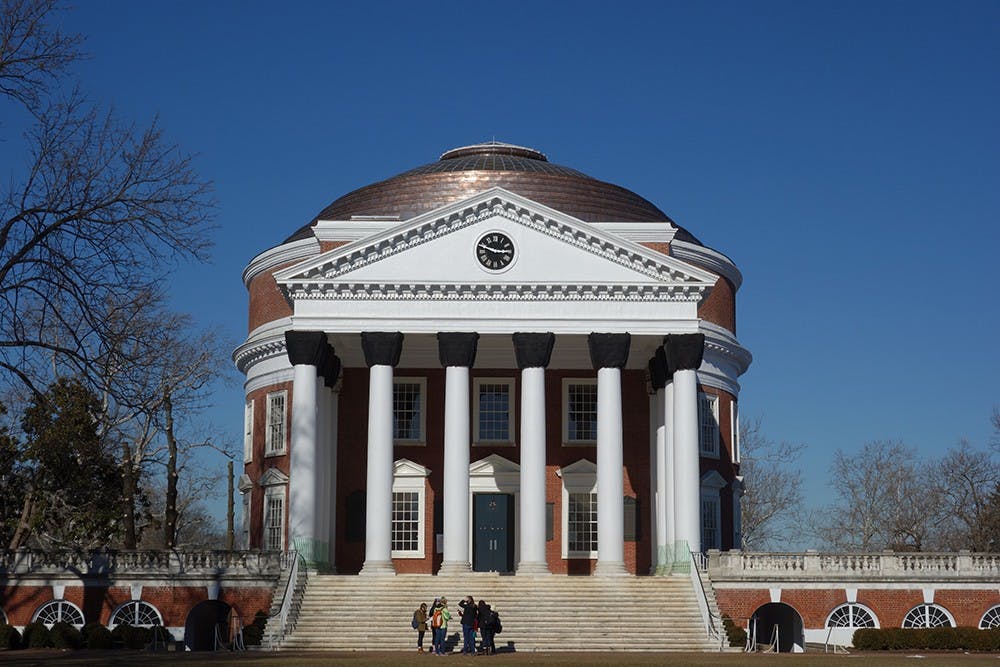University President Teresa Sullivan created the President’s Ad Hoc Group on University Climate and Culture in December 2014 to address and explore policies, practices and structures surrounding the issues of student safety on Grounds. The Group had three Working Groups — the Prevention Working Group, Response Working Group and Culture Working Group — to specifically address different components of these topics.
In April 2015, the Response Working Group formally recommended the University implement mandatory single-credit course for first-year students about sexual and power-based violence. Nearly one year after the recommendation was made, no action has been taken to implement such a course.
The Response Working Group was established to discuss and propose recommendations about the University’s current response and reporting system for incidents of sexual assault. The group included faculty, alumni, and undergraduate and graduate students, among other groups.
In the Response Working Group’s Report to the Ad Hoc Group on University Climate and Culture, the working group recommended “all first-year, transfer students and incoming graduate and professional school students be required to participate in a one credit course that would last at least half a semester, meeting more than once a week.”
The course would focus on individual roles and responsibilities within the cultural system which concern issues of sexual assault and related topics.
“This course would engage every member of the student body on the definition, causes and costs of gender and power-based violence,” the report read.
Response Working Group Chair Frank Dukes said every group member supported the recommendation.
“We were asking ourselves what kind of culture do we want to have and how do we create that,” Dukes said. “Many people talked about the intersection of gender, race, class and sexual orientation and how they were tied up with issues of violence and power.”
University Spokesperson Anthony de Bruyn said the Ad Hoc Group on University Climate and Culture was purely an advisory system, and not all the recommendations will be pursued by administration, although many are still in review.
“The recommendations from the three working groups were viewed as advisory in nature,” de Bruyn said in an emailed statement. “Many of the recommendations reinforced initiatives that were already underway. Others, the president noted, required additional consideration and may take time to accomplish.”
The Response Working Group did not include specific details for the course as a part of their recommendation in April 2015. The group had concerns for costs, finding willing professors to teach the course and the merit of having another area requirement for students at the University, Dukes said.
“What could get in the way is funding, for one,” Dukes said. “Adding another requirement is not something anybody at the University takes lightly, either. It’s a pretty big undertaking.”
The University is still considering the implementation of a single-credit mandatory course on gender and power-based violence as an option, but is also assessing and considering other viable options for educating the University community on these topics, de Bruyn said
Dukes said he did not anticipate the course would be implemented by this academic year, but is hopeful it may one day become policy.
“I just don’t think we’ve had the opportunity to say whether or not it’s going to happen,” Dukes said. “I think there’s a good chance the class is going to exist, but whether or not it’s going to be a requirement for everybody — I don’t know.”
The University has implemented several of the three working groups’ recommendations, such as investing an additional $60,000 in permanent funding to support programs affiliated with the Green Dot organization on Grounds, making information about sexual assault policy at the University more accessible and revising the University sexual assault policy in 2015.
In January, Sullivan released a status report to the Ad Hoc Group and noted that some specific recommendations by the Response Working Group have been implemented, such as initiating discussion about the revitalization of the Sexual Assault Response Team and working with Student Health and Counseling and Psychological Services to ensure sexual assault survivors receive necessarily screenings and treatment.
The University is also currently partnering with the Harvard Law School Gender Violence Program to create a training institute called “Futures without Violence.” The goal of the program is to create a curriculum to prevent and respond to sexual assault on college campuses across the nation, de Bruyn said.
The University plans to host the first training institute this spring and summer, de Bruyn said.
Dukes said it remains to be seen if newly implemented policies will be successful.
“Are we reducing violence? Are we having more students get counseling services? That would let us know if we’re successful now,” Dukes said. “Maybe in a year or two we’ll get some numbers to be able to tell that story.”







